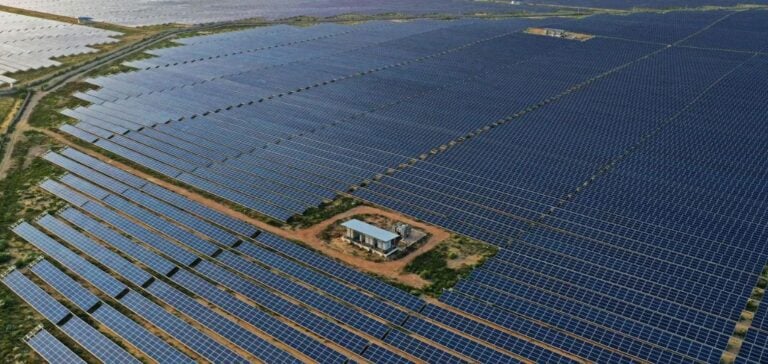Ampin Energy Transition and Sumitomo Corporation recently established a joint venture, Ampin C&I Power Pvt.
Ltd. to develop renewable energy projects in India. This initiative comes against a backdrop of rapidly growing demand for renewable energy, particularly solar and wind power.
The joint venture aims to create a portfolio of assets with a targeted capacity of 1 GW, with a total investment estimated at around 100 billion yen, or approximately $711 million.
Ampin will hold 51% of the company, while Sumitomo will hold 49%, underlining the commitment of both entities to this ambitious project.
The joint venture’s strategy focuses on developing projects connected to the state transmission grid (STU), enabling power to be supplied to industrial and commercial customers via power purchase agreements (PPAs).
Sumitomo plans to leverage its global presence, in particular its network of Japanese affiliates operating in India, to support the growth of the joint venture’s portfolio.
This approach aims to capitalize on the opportunities offered by the Indian market, which is booming in the renewable energy sector.
Development and Expansion Strategy
Sumitomo’s ambition is to create a green energy platform in India, encompassing the entire value chain from renewable energy generation to direct supply to commercial customers.
This initiative is part of a broader strategy to meet the growing demand for renewable energy, encouraged by regulatory reforms and easier access to transmission and distribution networks.
By integrating Ampin’s local expertise with Sumitomo’s international know-how, the joint venture is positioned to respond effectively to market needs.
The Indian APP market is particularly promising, ranking as the third largest in the world after the USA and Spain.
Projected growth, from 12 GW in 2023 to 100 GW by 2030, testifies to the enormous potential of this sector.
Ampin, since its inception in 2016, has raised around $600 million, attracting investors such as Lightrock India, Copenhagen Infrastructure Partners, and CBRE Caledon Capital Management Inc.
This solid financial base will enable the joint venture to develop ambitious projects and meet the growing demand for renewable energy.
Market analysis and outlook
India, with its fast-growing population and rapid industrialization, represents a key market for renewable energies.
Favorable government policies, such as relaxing regulations and encouraging foreign investment, are creating an environment conducive to the expansion of renewable energy projects.
The joint venture between Ampin and Sumitomo fits perfectly into this dynamic, aiming to capitalize on the opportunities offered by the APP market.
Ampin’s expertise in developing renewable energy projects, combined with Sumitomo’s international experience, positions the joint venture for success in a rapidly changing sector.
By focusing on STU-connected projects, Ampin C&I Power Pvt.
Ltd. can not only meet the energy needs of industrial and commercial customers, but also contribute to India’s energy transition.
As a Sumitomo representative states, “We are determined to play a key role in the development of a sustainable energy infrastructure in India.”
The creation of the joint venture Ampin C&I Power Pvt.
Ltd. illustrates the companies’ growing commitment to investing in renewable energy in India.
With a targeted portfolio of 1 GW and significant investment, this initiative has the potential to transform the country’s energy landscape.
By integrating the strengths of Ampin and Sumitomo, the joint venture is well positioned to meet the growing demand for renewable energy, while contributing to the sustainability of India’s energy sector.
The prospects for growth in the APP field, coupled with a favorable regulatory framework, point to a promising future for renewable energy projects in India.






















